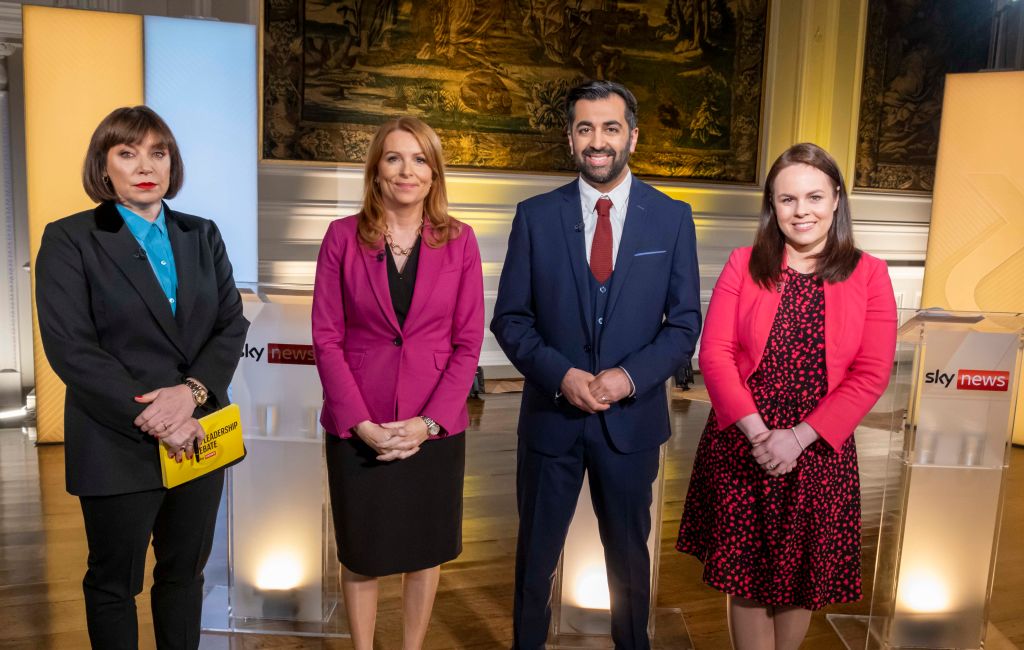Yesterday saw the final televised debate between the three contenders for leader of the SNP and First Minister of Scotland. Voting will end and the winner will be declared on 27 March.
Or will it? Those sick of this increasingly tawdry contest should prepare themselves: it may have a way to go yet. There are calls for the contest to be halted, restarted or at least reset. And if that doesn’t happen, there is a risk that the winner will not be recognised by certain sectors of the party. There is a talk of a legal challenge from pro-independence blog Wings Over Scotland (which is mulling crowdfunding such a move).
The reasons are simple. There are serious concerns about the integrity of the process and about who will actually be voting/has already voted. There is a discrepancy between the declared number of SNP members (72,000) and the number of registered voters given to the online voting company (Mi-Voice) tasked with administering the contest (78,000, according to the Mail on Sunday). Why the difference? Who are these 6,000 ghost voters?
One theory is that faced with a haemorrhage of its membership the SNP dragged its feet about processing the cancellation of members accounts, perhaps in the hope that people would change their minds. This means former members who stopped paying their subs months ago may have been registered as eligible and to have actually voted. There are some reports of this happening. It also means that the embarrassing 50,000 drop in members since 2019 may be an underestimate.
Then there is the alleged preferential treatment received by court favourite Humza Yousaf. The truncated schedule seemed designed to assist the health secretary who was endorsed by almost the entire SNP hierarchy (he was even being advised by Sturgeon consigliere Liz Lloyd until her resignation). There have also been allegations about membership rolls being accessed to give Yousaf an advantage and his supporters being bussed into multiple hustings.
As all of this has become apparent as the contest has unfolded, which raises the question of why voting was allowed to begin before the hustings had been concluded, and whether people will now have changed their minds. Many who, for instance, voted early for Yousaf may now be rethinking their choice. Apart from the allegations of being favoured, there is his performance in the debates – he was heckled yesterday after a characteristically tortured reply to a question about the GRRB (Gender Recognition Reform Bill).
He has also appeared to modify his stance on one of the key issues – whether the Section 35 blocking order from No. 10 would be challenged in court. He had pledged to do so but his updated position is that he won’t if the lawyers advise that the challenge will likely fail. This is a major shift that could theoretically have cost him thousands of votes from the party’s most zealous social justice warriors, had they known about it before they voted.
If Humza can change his mind, why can’t the voters? Perhaps they can. A possible compromise that has been suggested: for the contest to continue on schedule but for those that have already voted to be allowed to ‘edit’ their votes. Mi-Voice has said this is possible and there is a precedent (it was allowed in the selection battle in Dunfermline and west Fife in 2015). But acting SNP CEO Mike Russel has ruled it out and Yousaf and his rival Kate Forbes came out against the move.
The stated reason for this from Russel is that it would be confusing and would open up the process to the potential of hacking, but this has been widely ridiculed. Sceptics are left wondering if the real reason the SNP don’t want people changing their minds is that they are happy with how the vote has gone so far.
But that wouldn’t explain why two of the candidates opposed what seems like a common sense solution (unless they both thought they were ahead or one has given up and come to some sort of arrangement with the other?). A less conspiratorial explanation is that the party feels any more embarrassment and any further admissions of error could bring the already tottering edifice crashing to the ground.
If so, it would be in keeping with a party that always doubles down and never backs down, a party that would rather throw good money after bad and pretend that ferries rotting in docks in Port Glasgow will one day sail than admit they won’t. And it’s in keeping with a party leadership that would rather pretend its membership numbers were healthy than admit they are plummeting, and insist that their stance on the GRRB wasn’t out of step with public opinion when every single opinion poll proved that it absolutely was.
Peter Murrell and Nicola Sturgeon may have stepped back, but their spirit lives on in this farcical, chaotic, contest that increasingly makes Wacky Races look well-organized and fair.







Comments